Posted on March 27, 2023 by Amanda Cerreto

City of San Antonio
March 27, 2023 – As a Tier One research university committed to tackling society’s grand challenges, UTSA has become a destination for those interested in performing complex, evidence-based research. The College for Health, Community and Policy currently houses six post-doctoral fellows who are all helping to leverage UTSA’s research capabilities to benefit the San Antonio community.
A post-doctoral fellowship is a training-focused position available after a student completes their doctorate. They serve as dedicated researchers with specialized knowledge, and will often work directly with full-time faculty to secure grants, publish papers and complete research projects.
HCAP’s post-doctoral fellows currently serve the Departments of Psychology, Sociology and Public Health. Their work is often community-based, solving problems that citizens of San Antonio face daily.
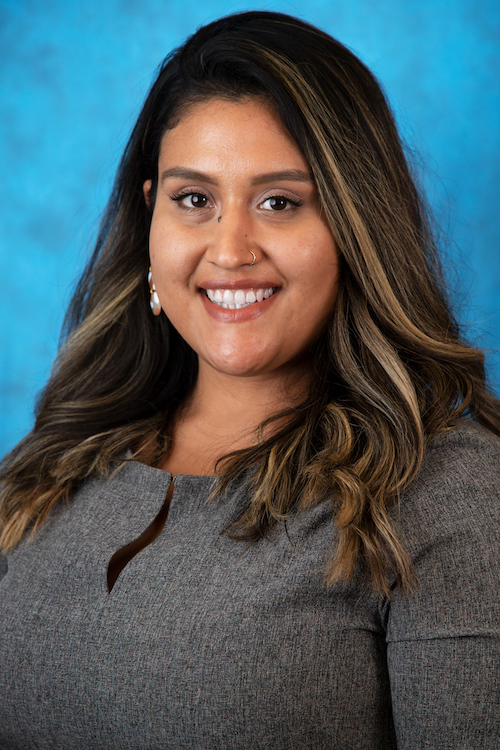 Marina Armendariz
Marina Armendariz
Inaugural Provost’s Diversity Postdoc to Faculty Fellow
Ph.D. in Biobehavioral Health, Pennsylvania State University
Marina Armendariz has been with HCAP since the fall of 2021. Her research examines health issues that disproportionately affect Latino populations. Currently, she is exploring how the neighborhood environment influences stress and health (i.e. chronic disease and cognition) for aging Latinos. She primarily works with Jeffrey Howard, associate professor of public health, and colleagues from other networks as well.
“I remember my first meeting with Dean Cossman as she shared her intention behind the name itself – College FOR health, community, and policy,” Armendariz said. “I was excited to join a newly formed College that emphasized the importance of community.”
Armendariz is passionate about using both her lived experiences and Mexican-American background to inform how she approaches her research, especially as it relates to Latino health disparities. Her goal in pursuing a doctoral degree was to return to teach students at a Hispanic Serving Institution to pay it forward to students with similar aspirations.
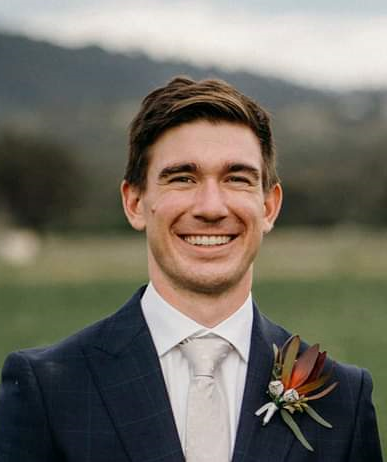 Murray Bennett
Murray Bennett
Post-Doctoral Fellow, Psychology
Ph.D., Psychology, University of Newcastle, Australia
Murray Bennet moved to San Antonio from Australia in December of 2022, making him the newest member of the post-doctoral cohort. He works with Joseph Houpt, associate professor of psychology, on projects relating to the combination of mathematical psychology and artificial intelligence.
Bennett’s research has examined the effects of collaborative and competitive group conditions on human performance. Currently, he is evaluating group performance when one group member is an artificially intelligent machine. “Specifically, we can use a mathematical approach to psychology to evaluate the psychological processes used by experts and naive participants when identifying potentially cancerous skin lesions,” Bennett said. “We compare human performance and cognitive processes with state-of-the-art deep learning algorithms to help improve melanoma identification and early detection by humans and AI technology.”
Bennett enjoys the scientific process and is glad he is able to use this method in his chosen field of psychology. He hopes to learn as much as possible and make the most of the opportunities available at UTSA.
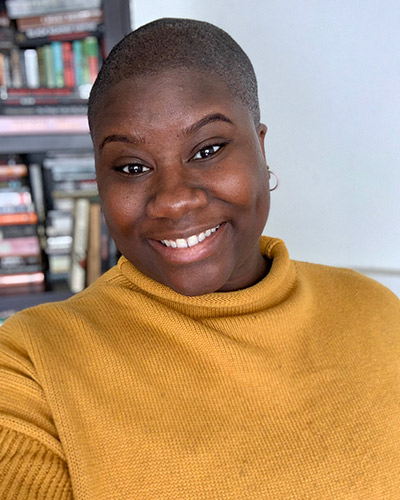 Natalie Bradford
Natalie Bradford
Post-Doctoral Fellow, Public Health
Ph.D., Health policy and Management, University of California, Los Angeles
Natalie Bradford joined HCAP in the summer of 2022. She was attracted to HCAP’s multidisciplinary structure and community engagement in particular, as it aligned well with her research. “The college’s name alone combines my three research, teaching, and service interests: health, community, and policy,” she said. “I also wanted to work in a place where I could combine my research interests, creative writing, and community work.”
Bradford is working with Rhonda BeLue, professor of public health, on various community engagement projects in and around San Antonio. Her research examines the connections between policy, place, and racism, and how these structural factors affect health care access, especially among Black communities. Currently, she is working on a project that focuses on the relationship between racial residential segregation and access to federally funded community health centers.
Bradford sees public health as an area that enables her to contribute to the reshaping of research, pedagogy and practice. After participating in two research programs as an undergraduate student, which gave her the opportunity to work on studies involving qualitative and quantitative data analysis with a racially diverse group of students and faculty, she knew that an advanced degree in this field was what she wanted to pursue.
“I am committed to the communities I am part of and work with; I am committed to our collective wellbeing; I am committed to our ongoing struggle for health equity and social justice,” Bradford said. “Research is one of many tools we use in that struggle, it is one of the primary tools I use.”
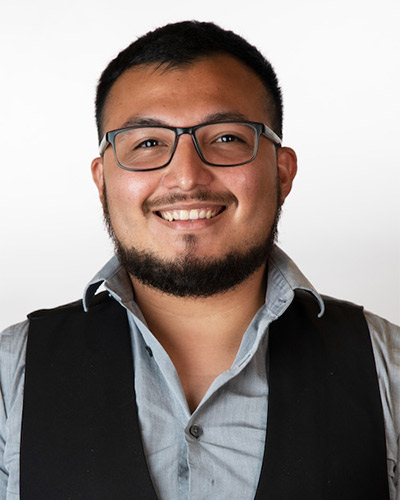 Eduardo Gandara Garcia
Eduardo Gandara Garcia
Provost’s Diversity Postdoctoral Fellow
Ph.D., Public Health, Texas A&M University
Eduardo joined HCAP in September of 2022. His research involves looking at the role of the church as a setting for health promotion programming. “I investigate those facilitators and barriers that exist within the church setting, particularly in Latino and African American churches,” he said. Another research area he is involved in is building skills and capacities of community health workers.
Throughout Gandara’s studies, giving back to the community was always at the heart of what he wanted to pursue. “What really attracted me to UTSA was the mission of HCAP. I was really interested in working to improve community health by developing solutions for many complex problems in our society,” he said.
Gandara is affiliated with the Center for Community-Based and Applied Research (CCBAHR), mentored by Meizi He, professor of public health. Ideally, he would love to transition into a tenure-track position where he can continue his research where he can continue his research as well as provide mentorship and training for students from underserved backgrounds.
As he navigates through his first year of post-doctoral work, Gandara Garcia emphasized the importance of camaraderie and collaboration. “I think it's really so important to grow and thrive, to have people there to work with and lean on,” he said, “as well as having faculty members who have navigated the process and help you meet your goals.”
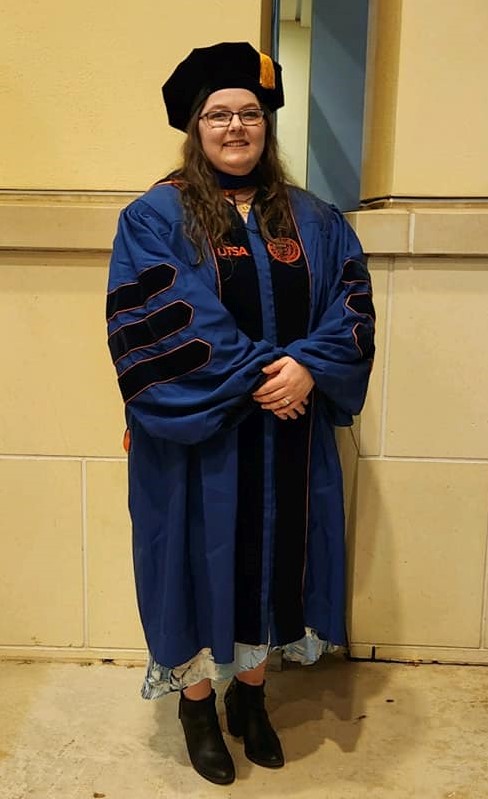 Rebecca Kilgore
Rebecca Kilgore
Post-Doctoral Fellow, Psychology
Ph.D., Psychology, UTSA
Rebecca Kilgore has been with HCAP before it officially existed – she enrolled as an undergraduate in psychology in 2013. She stayed in the program through her master’s and doctoral degrees and now serves as a post-doctoral fellow.
Her main research interest is how complex trauma and/or PTSD affect our everyday lives and how we interact with the world because of it. She is currently working with Rebecca Weston, associate professor of psychology, and Megan Piel, associate professor of social work, on a project that focuses on former foster youth and their educational success as well as an intervention to help promote safer sexual behaviors and how they view themselves.
As a first-generation student, Kilgore has always wanted a Ph.D., but never thought it could actually happen. When a professor encouraged her to pursue a master’s degree, she realized that if she could get through those two challenging years, she had what it took to complete a doctorate. She gives credit to her parents, husband, and Drs. Ray Garza and Willie Hale for believing in her and giving her the momentum to get through the programs.
“I grew up very blue-collar, but my parents instilled that once you start something, you have to finish it or you’ll regret it the rest of your life,” Kilgore said. “Now, I can proudly say that not only am I the first in my family to finish college, but I am one of the very few, if not the only one, from my hometown of 1,000 people to get a Ph.D.”
One of the cornerstones of UTSA’s graduate psychology program is military health, and is a required course for the doctoral program. For Kilgore, it reignited her passion for not just PTSD in veterans, but trauma across all realms and all walks of life.
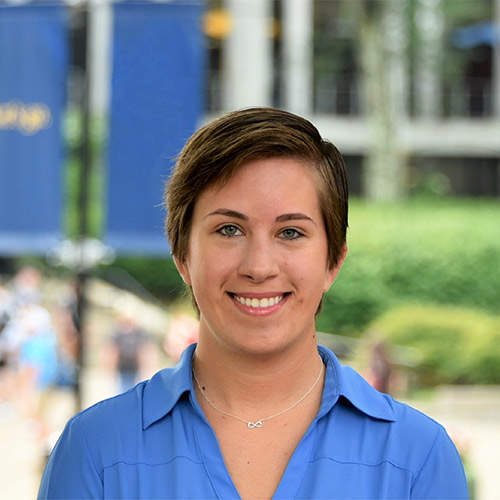 Julia Wolf
Julia Wolf
Post-Doctoral Fellow, HCAP
Ph.D., Sociology, West Virginia University
Julia Wolf joined the college in the fall of 2021. With a background in multiple fields including sociology, demography, psychology, business management and marketing, the interdisciplinary work of HCAP was appealing to her.
Wolf works broadly in various roles at the college-level across disciplines, and is currently working on projects with Dean Lynne Cossman, Rhonda BeLue, professor of public health, Erica Sosa, professor of public health, Mike Smith, professor of criminology and criminal justice and Kellie Lynch, associate professor of criminology and criminal justice.
Her research interests include social determinants of health (particularly spatial disparities in health/mortality outcomes in the US), built environment (e.g. green/blue spaces, walkability, accessible/sustainable infrastructure) and its effects on health/well-being/mortality and LGBTQ+ health and well-being.
In addition to her projects within the college, Wolf works closely with members of the City of San Antonio R&D League, managing several trials of UTSA and COSA faculty/researcher teams.
“I am passionate about health and well-being because they play such a large role in our quality of life, but they vary based on ascribed characteristics one can't control (e.g., race/ethnicity, sexual orientation, gender identity, etc.) and by conditions one may not be able to control (e.g., socioeconomic status, location of residence),” Wolf said. “Large entities such as health care systems, political systems, education systems, religious institutions, and criminal justice systems also affect the health and well-being of individuals and communities, often producing disparities for marginalized and vulnerable groups. I have always had a strong passion for social justice, so researching the systems that perpetuate injustices just made sense to me.”

